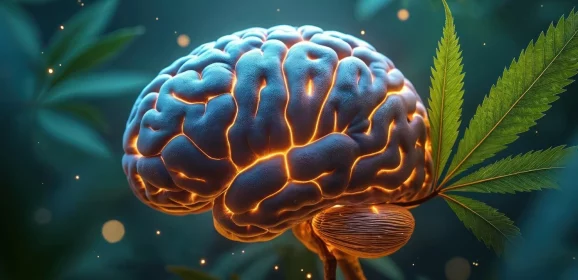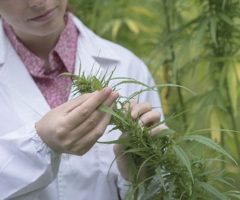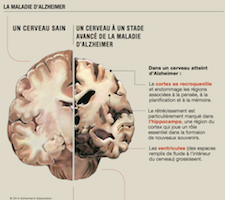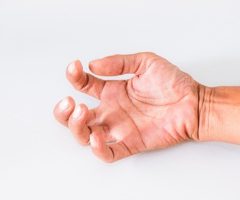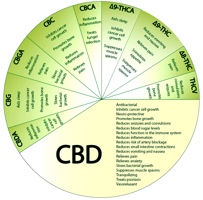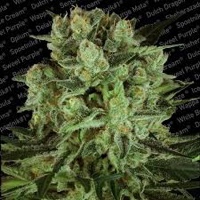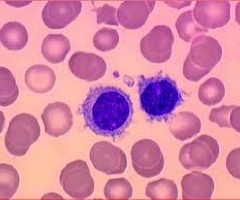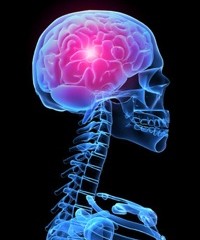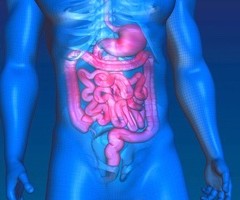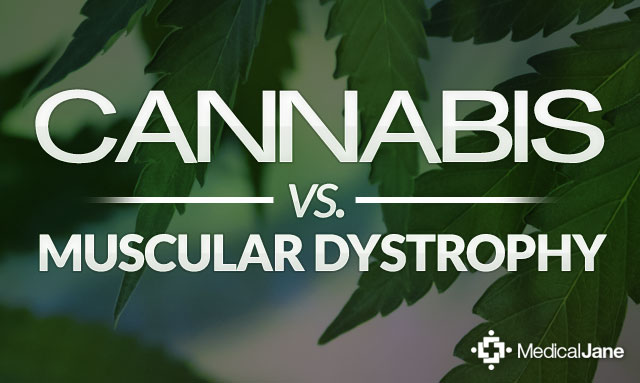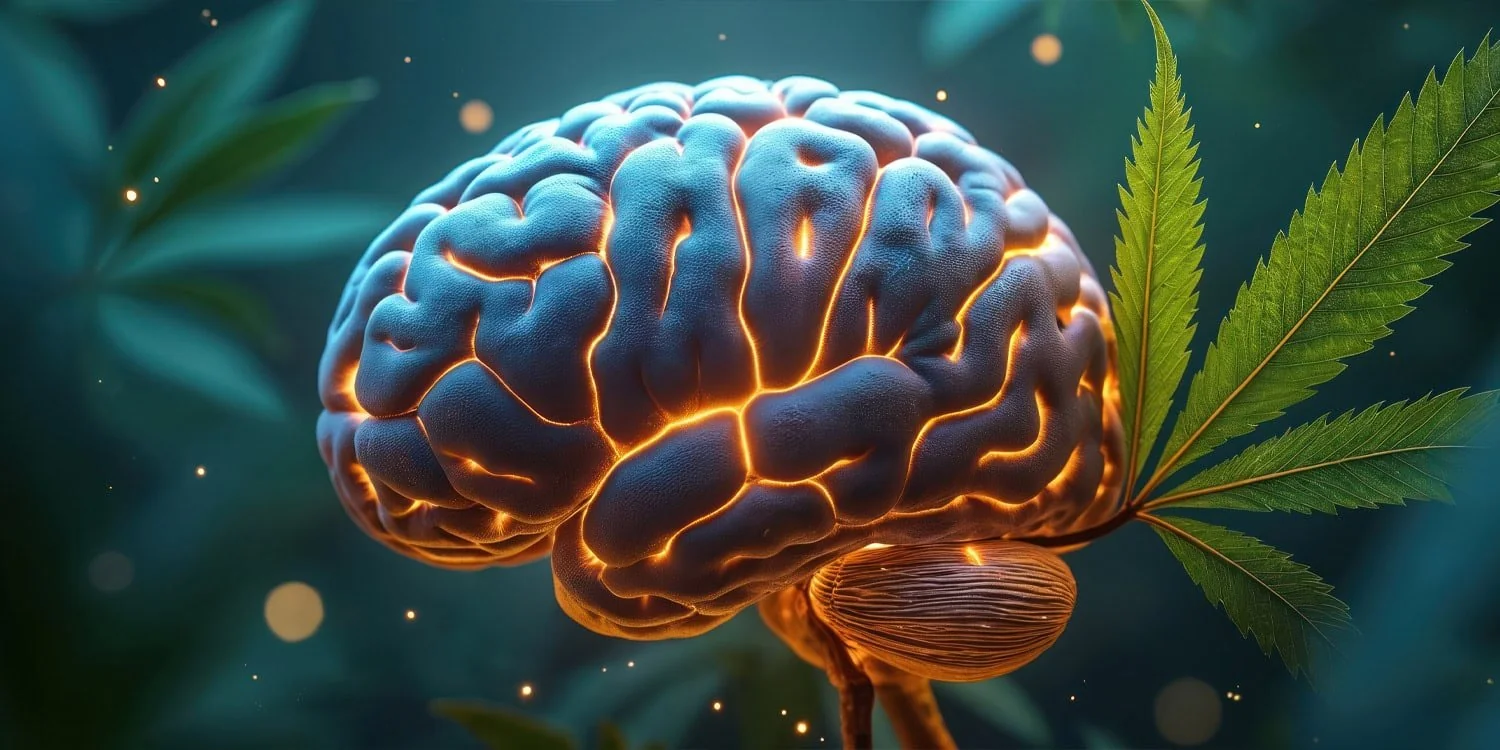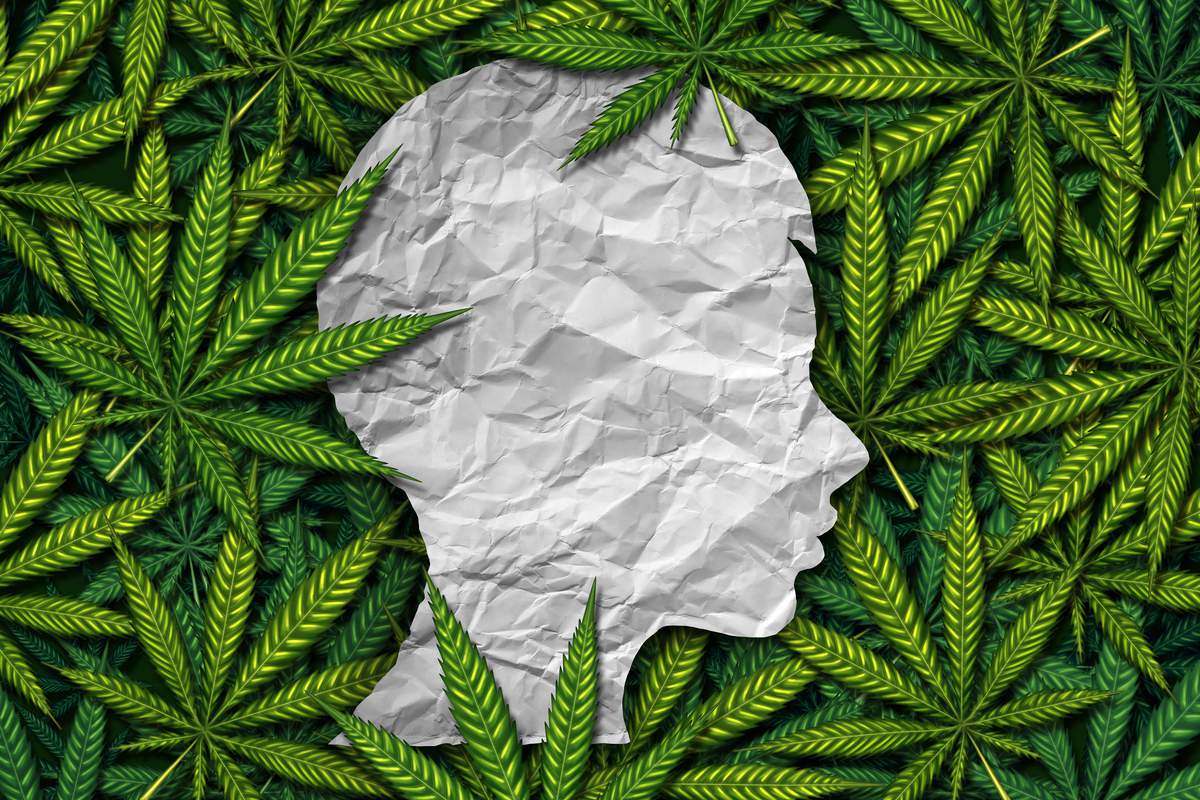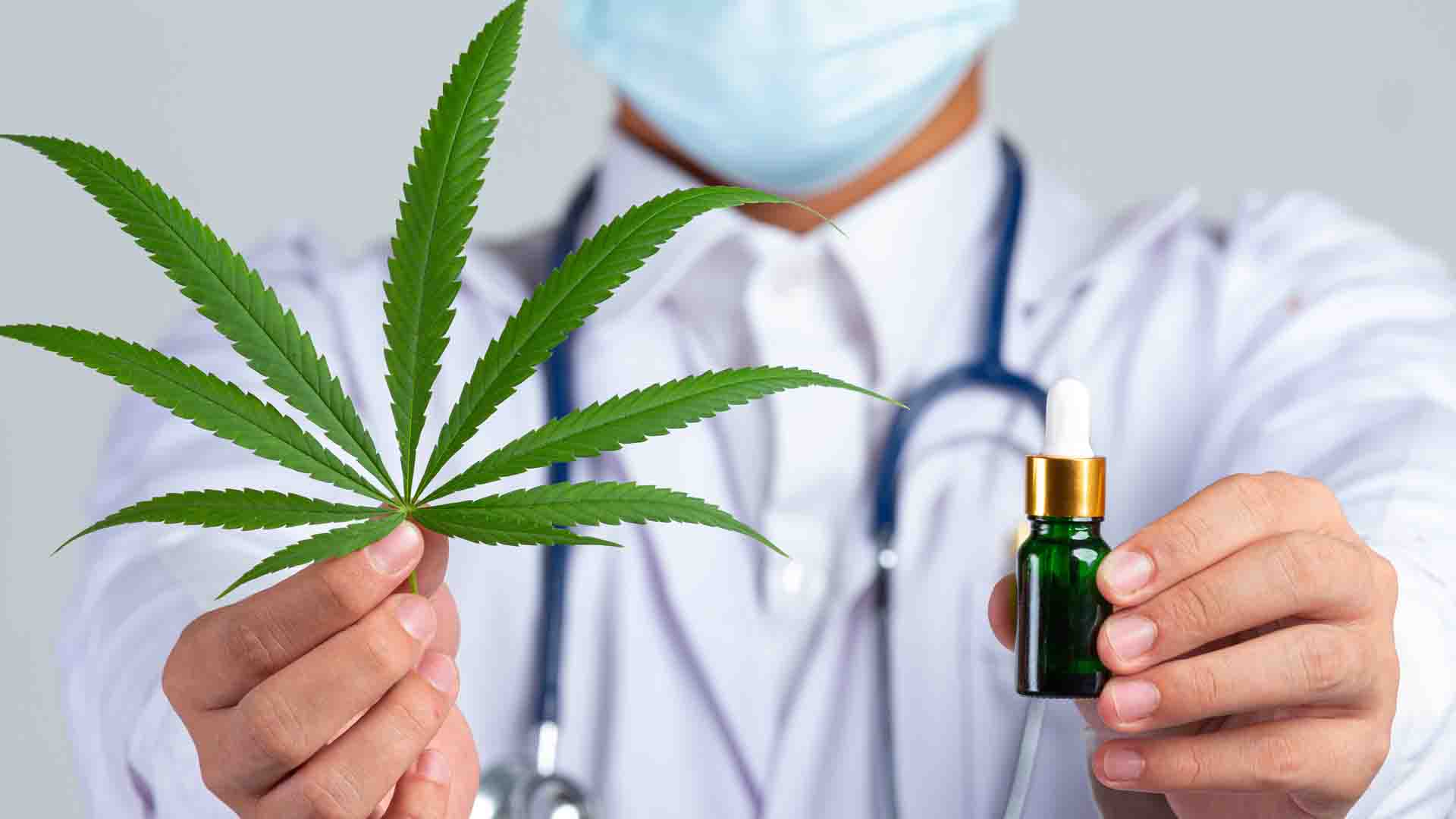Publié le 9 Sep 2016
Qu’est ce que la migraine ? La migraine est un type de céphalée (mal de tête) dont souffre 15 à 20% de la population mondiale, et notamment les femmes qui sont trois fois plus touchées que les hommes. Les patients ressentent périodiquement une forte douleur, le plus souvent unilatérale (d’un seul coté de la tête), sous forme de pulsations, et cette douleur est aggravée lors d’activités physiques simples telles que se mettre debout ou...
Lire plus
Publié le 30 Août 2016
En révélant comment les cannabinoïdes, les agents actifs du cannabis, peuvent affecter la vision, ces chercheurs de l’Institut neurologique de Montréal, suggèrent une éventuelle nouvelle indication du cannabis médical? Car contrairement à toute attente, ou idée reçue, l’activation de la signalisation des cannabinoïdes accroît l’activité des cellules de la rétine et donc améliore la vision. Ces premières données, obtenues sur le...
Lire plus
Publié le 24 Août 2016
Photo: iStock – Un essai clinique qui sera mené au CRCHUM vise à savoir si le cannabidiol est efficace pour aider les toxicomanes à se libérer de leur dépendance à la cocaïne. Un composé dérivé du cannabis pourrait enrayer la dépendance à la cocaïne, suggèrent certaines études animales et humaines. Un essai clinique visant à mesurer l’efficacité du cannabidiol chez des cocaïnomanes désirant se libérer de leur toxicomanie...
Lire plus
Publié le 27 Juin 2016
Qu’est ce que la maladie d’Alzheimer? La maladie d’Alzheimer est une maladie dégénérative qui provoque la perte progressive et définitive des fonctions cérébrales, et notamment de la mémoire, chez les personnes âgées. Cette forme de démence touche environ 30 millions de seniors à travers le monde, un chiffre qui devrait doubler d’ici 20 ans à cause du vieillissement de la population dans les pays industrialisés. Alzheimer touche...
Lire plus
Publié le 25 Juin 2016
DOSSIER COMPLET EN PDF : Guide-to-Cannabis-for-Chronic-Pain-Patients-in-Europe-1
Lire plus
Publié le 5 Juin 2016
La spasticité est fréquente dans la sclérose en plaques avec un impact important sur la qualité de vie des malades. Les thérapeutiques actuellement recommandées en première intention ont un effet clinique limité Le Sativex®, médicament à base de cannabis, approuvé dans de nombreux pays européens, représente une nouvelle opportunité thérapeutique pour les malades spastiques ne répondant pas aux thérapeutiques usuelles. Dans une...
Lire plus
Publié le 19 Mai 2016
Abstract Background Substitution can be operationalized as the conscious choice to use one drug (legal or illicit) instead of, or in conjunction with, another due to issues such as: perceived safety; level of addiction potential; effectiveness in relieving symptoms; access and level of acceptance. This practice of substitution has been observed among individuals using cannabis for medical purposes. This study examined drug and alcohol...
Lire plus
Publié le 3 Mai 2016
Abstract Cannabis has a long history of anecdotal medicinal use and limited licensed medicinal use. Until recently, alleged clinical effects from anecdotal reports and the use of licensed cannabinoid medicines are most likely mediated by tetrahydrocannabinol by virtue of: 1) this cannabinoid being present in the most significant quantities in these preparations; and b) the proportion:potency relationship between tetrahydrocannabinol...
Lire plus
Publié le 3 Mai 2016
Abstract Objective To present a summary of current scientific evidence about the cannabinoid, cannabidiol (CBD) with regards to their relevance to epilepsy and other selected neuropsychiatric disorders. Methods We summarize the presentations from a conference in which invited participants reviewed relevant aspects of the physiology, mechanisms of action, pharmacology and data from studies with animal models and human subjects. Results...
Lire plus
Publié le 3 Mai 2016
Abstract Cannabidiol (CBD) reduces seizures in childhood epilepsy syndromes including Dravet syndrome (DS). A formulation of CBD has obtained orphan drug designation for these syndromes and clinical trials are currently underway. The mechanism responsible for CBD effects is not known, although it could involve targets sensitive to CBD in other neurological disorders. We believe of interest to investigate whether these potential...
Lire plus
Publié le 29 Avr 2016
The United States Drug Enforcement Administration (DEA) has given formal approval to a controlled clinical trial to study the effectiveness of whole-plant cannabis as a treatment for post-traumatic stress disorder (PTSD) in military veterans, the California-based non-profit Multidisciplinary Association for Psychedelic Studies (MAPS) announced last week. Post-traumatic stress disorder is an anxiety disorder that impacts an estimated...
Lire plus
Publié le 2 Avr 2016
OBJECTIVES: This study examines the concept of clinical endocannabinoid deficiency (CECD), and the prospect that it could underlie the pathophysiology of migraine, fibromyalgia, irritable bowel syndrome, and other functional conditions alleviated by clinical cannabis. METHODS: Available literature was reviewed, and literature searches pursued via the National Library of Medicine database and other resources. RESULTS: Migraine has...
Lire plus
Publié le 24 Mar 2016
Maladie de Crohn: Une nouvelle recherche dit que fumer de la marijuana entraîne une complète rémission de cette maladie dans 45% des cas. En France, conformément à la Loi : La définition réglementaire du médicament est la suivante : (Art. L. 5111-1 du code de la santé publique) « On entend par médicament toute substance ou composition présentée comme possédant des propriétés curatives ou préventives à l’égard des maladies humaines...
Lire plus
Publié le 8 Mar 2016
Université de Lille 2 Faculté des Sciences Pharmaceutiques Année Universitaire 2015/2016 et Biologiques de Lille Soutenue publiquement le 10 décembre 2015 Par M. LUCAS Matthieu THESE POUR LE DIPLOME D’ETAT DE DOCTEUR EN PHARMACIE _____________________________ LES CANNABINOÏDES DANS LA PRISE EN CHARGE DES PATIENTS SOUS ANTICANCEREUX ET ANTIRETROVIRAUX : CONNAISSANCES ACTUELLES ET PERSPECTIVES D’AVENIR EN FRANCE. Membres du...
Lire plus
Publié le 20 Fév 2016
Un fumeur de cannabis. Photo Thomas Wirth. AFP Si des précédentes études estimaient qu’un consommateur de marijuana avait plus de chances de développer des troubles psychologiques et neurologiques, un rapport de l’Université de Columbia affirme le contraire. A noter : la schizophrénie n’a pas été prise en compte. Consommer du cannabis ne serait pas lié...
Lire plus
Publié le 8 Fév 2016
Cannabis and schizophrenia John Rathbone1, Hannele Variend2, and Hetal Mehta31HEDS, ScHARR, The University of Sheffield, Sheffield, UK 2CRHT, Becklin Centre, Leeds, UK 3Lancashire Care NHS Trust, Guild Lodge, Preston, UK Abstract Background—Many people with schizophrenia use cannabis and its effects on the illness are unclear. Objectives—To evaluate the effects of cannabis use on people with schizophrenia...
Lire plus
Publié le 23 Jan 2016
La consommation de cannabis chez les ados entraînerait un déclin du quotient intellectuel. Mais une étude sur les jumeaux suggère que le lien n’est pas aussi clair. Si vous avez grandi dans les années 80 ou 90, vous avez sûrement dû tomber sur des clips télé délivrant le message suivant : le cannabis rend bête. Au Etats-Unis, les candidats républicains, comme Donald Trump, font même de la lutte contre la consommation de...
Lire plus
Publié le 18 Jan 2016
Un essai clinique va vérifier l’efficacité d’un médicament contenant du cannabidiol contre des épilepsies très sévères. «Je devrais prendre le temps d’expliquer à sa grande sœur que ce n’est pas la même chose que le cannabis que l’on fume…» Amateurs de volutes enivrantes, passez votre chemin: l’Epidiolex prescrit à la cadette de Claire est quasiment dépourvu de THC, principal responsable des effets...
Lire plus
Publié le 17 Jan 2016
L’Institut national du cancer, une agence parrainée par le gouvernement des Etats-Unis, a récemment mis à jour l’information concernant le cannabis, admettant qu’il avait été démontré que le cannabis détruisait les cellules cancéreuses. Voici les mises à jour : Action antitumorale Il est possible que les cannabinoïdes inhibent la croissance des tumeurs en détruisant les cellules, en bloquant leur croissance et en bloquant le...
Lire plus
Publié le 14 Jan 2016
A chaque anniversaire de sa fille, Ines Cano se fait tatouer un papillon. C’est ainsi qu’elle célèbre le combat quotidien de sa petite Luna contre les crises d’épilepsie aigües dont elle souffre depuis la naissance, grâce à un traitement à base de cannabis, en passe d’être légalisé en Colombie. Désormais, douze papillons lui rappellent qu’il est possible de soulager la souffrance de Luna, victime...
Lire plus
Publié le 11 Jan 2016
Mise à jour Octobre 2015 : Depuis la publication de cet article en août 2014, une simple recherche dans les publications médicales de l’Institut National de la Santé des USA (PubMed) nous a permis d’ajouter 14 nouvelles études, cet article qui recensait 68 études scientifiques en contient donc désormais 82 ! Le cancer représente une des principales causes de décès dans les pays industrialisés. Les traitements proposés jusqu’à présent...
Lire plus
Publié le 3 Jan 2016
L’épilepsie, un trouble neurologique parfois très difficile à soigner Selon l’Organisation Mondiale de la Santé, l’épilepsie est une affection neurologique qui touche autour de 50 millions de personnes à travers le monde, et dont environ 30% des cas ne peuvent pas être traités efficacement. Il faut rappeler que tout le monde peut être touché, à n’importe quel moment de sa vie. Certaines formes d’épilepsie sont particulièrement graves...
Lire plus
Publié le 3 Jan 2016
A controlled animal study published in Daru: Journal of Faculty and Pharmacy, Tehran University of Medical Sciences found that topical treatment with 1% purified (i.e. >98%) CBD topical cream may help to reduce damage caused by a disease that results in brain inflammation. This holds relevance for humans with autoimmune diseases that lead to demyelination (damage to the fatty covering around neurons that helps them to transmit...
Lire plus
Publié le 12 Août 2015
CB2 Receptors Help Treat Alzheimers, Dementia and M.S Traditional endocannabinoid biochemistry holds that there are two main endocannabinoid receptors while others exist as candidates. The two most studied cannabinoid receptors in the human body are the CB1 and CB2 receptors. Customarily, we are taught that CB1 receptors are located within the central nervous system (CNS) and CB2 are expressed outside the CNS in peripheral systems...
Lire plus
Publié le 3 Août 2015
Atopic diseases, or those that cause an individual to experience immediate allergic reactions (asthma being one of the more common), affect about 20 percent of the population in developed countries.Researchers looking for a way to combat the longtime public health concern conducted a series of testsinvolving the use of cannabidiol (CBD). Although the research used rats as subjects the results are nonetheless encouraging. Early...
Lire plus
Publié le 17 Juil 2015
L’ÉTUDE SANTÉ DU JOUR – Une nouvelle application médicale du cannabis pour traiter les fractures des os vient d’être découverte par des scientifiques. De précédents travaux ont montré que le cannabis a pour effet de stimuler la formation osseuse tout en ralentissant le phénomène de l’ostéoporose. Photo John Chapple / Rex Feat/REX/SIPA Les connaissances sur les propriétés thérapeutiques du cannabis...
Lire plus
Publié le 14 Juin 2015
Marijuana smokers performed better on tests of lung function compared to nonsmokers and cigarette smokers Marijuana does not impair lung function—at least not in the doses inhaled by the majority of users, according to the largest and longest study ever to consider the issue, which was published today in the Journal of the American Medical Association. Researchers working on a long-term study of risk factors for cardiovascular disease...
Lire plus
Publié le 12 Juin 2015
According to results of an animal study published in Journal of Leukocyte Biology in June 2015, the cannabinoid delta-9-tetrahydrocannabinol (THC) may be a safe and effective alternative or add-on therapy in the prevention of organ and tissue transplant rejection. What is Organ Transplantation? When a person’s organs or tissues begin to fail as a result of disease, a replacement from a donor may be needed in order to increase...
Lire plus
Publié le 30 Mai 2015
Do you remember the first time you heard about cannabidiol, or CBD? Remember how the national opinion of medical marijuana changed drastically once we gained knowledge of its non-psychoactive compounds? And who could forget how this discovery impacted the lives of children suffering from seizures and patients with chronic pain and inflammation? What you may not know is there are many other medicinal compounds like CBD unique to...
Lire plus
Publié le 28 Avr 2015
Currently, the majority of research in medical marijuana focuses exclusively on analyzing its effectiveness in treating various ailments of the human body. Dental marijuana research has not been extensively investigated, and hallmark features critical to heal dentition with this medicinal drug are vastly unknown. This systematic research review aims to 1) identify various molecular caries (cavities) mechanisms and 2) determine future...
Lire plus
Publié le 14 Mar 2015
The evidence that cannabinoids fight cancer has been accruing since 1974 (at least), when researchers at the University of Virginia determined that both inhibited a form of lung cancer. Since then, hundreds of studies have further confirmed the anti-cancer effects of those major cannabinoids, as well as other less popular cannabinoids, like cannabichromene (CBC) and cannabigerol (CBG). The evidence that cannabinoids fight cancer has...
Lire plus
Publié le 10 Mar 2015
Muscular dystrophies refer to a group of diseases that result in progressive degeneration of muscle mass. There are nine major types of muscular dystrophies, each causing unique manifestations of muscular deterioration. Over time, some patients may have trouble breathing or swallowing, and some will lose the ability to sit up or walk. Muscular dystrophy is genetic. Symptoms may start to develop as early as infancy or may not...
Lire plus
Publié le 10 Mar 2015
Outre l’Uruguay, qui met en place un système de sevrage de l’addiction à la pasta base, une préparation cocaïnique, grâce à une substitution utilisant le cannabis, les retours d’expérience du Canada, d’Autriche, de Chine ou des États-Unis permettent d’esquisser ce qui semble bien être une nouvelle propriété découverte au cannabis : celle de se substituer à la consommation d’autres produits psychoactifs, alcool, médicaments ou...
Lire plus
Publié le 28 Fév 2015
Phytocannabinoids in the Treatment of Melanoma An in-vitro and in-vivo study published in the Journal of Investigative Dermatology in February 2015 found that treatment with delta-9-tetrahydrocannabinol (THC) and cannabidiol (CBD) helped to decrease the viability of melanoma cells. Cells perform autophagy, a process designed to clean out intracellular debris (e.g. old cell parts [organelles], proteins that are no longer needed, etc.)...
Lire plus
Publié le 12 Fév 2015
A survey/chart study published in The Journal of Urology in February 2015 found that whole-plant cannabis use is associated with a decreased likelihood of developing bladder cancer. What is Bladder Cancer? Bladder cancer is caused by an overproliferation of abnormal cells of the bladder (an organ in the body that collects urine). Tumors can press on or block surrounding structures or spaces, causing dysfunction in normal body...
Lire plus
Publié le 20 Jan 2015
What is Intervertebral Disc Degeneration/Degenerative Disc Disease? Intervertebral discs sit between each vertebra (bone segments of the spine) and are comprised of fibrous cartilage. They act to stabilize and mobilize the spine, and also to absorb shock that results from movement, in order to prevent damage to the body. When intervertebral discs are damaged and degenerate (most commonly in the regions of the neck and lower back), the...
Lire plus
Publié le 16 Jan 2015
What is Chronic Prostatitis? Chronic prostatitis is caused by inflammation of the prostate (a gland in a male’s body that releases fluids which aid in achieving sexual reproduction), which leads to long-lasting, lost-term pain in the pelvic region (e.g. around the penis, anus, lower abdomen, and lower back). There are two types, including: chronic prostatitis/chronic pelvic pain syndrome (also known as...
Lire plus
Publié le 12 Jan 2015
Alcohol Abuse, Dependence, Tolerance, and Withdrawal Alcohol dependence (i.e. alcoholism) may result from alcohol abuse (i.e. use of alcohol in a way that negatively impacts one’s actions/life), and is characterized by a feeling that one needs to consume alcohol in order to function normally, with a decreased ability to stop drinking even if the desire to do so exists. Those with alcohol dependence develop tolerance to alcohol,...
Lire plus
Publié le 8 Jan 2015
IACM-Bulletin du 05 Janvier 2015 IACM: l’ IACM honore le Professeur Raphael Mechoulam pour les 50 années qu’il a consacrées à la recherche sur les cannabinoïdes C’est avec un film que l’IACM voudrait remercier son ancien président Raphael Mechoulam (2003-2005), Lionel Jacobson, Professeur de l’Université de Chimie Médicinale de Jérusalem. En 1964, le professeur Raphael Mechoulam et son collègue, le professeur Yechiel Gaoni, ont publié...
Lire plus
Publié le 3 Déc 2014
A study published in November 2014 in Molecular Cancer Therapeutics and conducted at St. George’s University of London’s Department of Oncology has found that the use of cannabinoids, specifically delta-9-tetrahydrocannabinol (THC) and cannabidiol (CBD), may be useful in treating high-grade gliomas, potentially slowing the disease’s progression.What Are High Grade Gliomas ? Gliomas are a type of advanced brain cancer that are...
Lire plus


